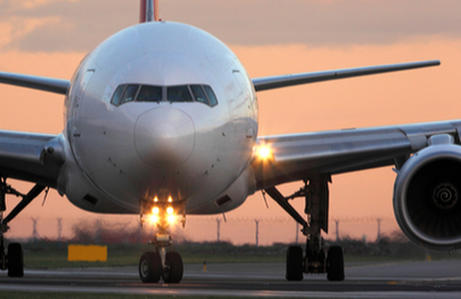Airline Travel
FARE is calling on every U.S. airline to join us in our effort to keep all Americans safe while flying.
In July 2019, an airline passenger began experiencing a life-threatening allergic reaction to a food he ingested 30,000 feet above the Atlantic Ocean. There was no epinephrine autoinjector on board. Had it not been for a doctor stepping forward to administer epinephrine from a vial in the plane's medical kit, the passenger may not have received the care required to survive. This is not the first severe food allergy reaction to take place during a flight.
Since 2003, the FAA has required all airlines to carry epinephrine in their onboard medical kits. But most airlines today only stock vials of the drug and not the easy-to-use autoinjectors. This practice raises problems that could one day prove to be fatal. Most Americans do not know how to determine the proper dose of epinephrine to administer from a vial to treat an anaphylactic food allergy reaction, nor do they know how to safely and properly do so without an autoinjector.
FARE is calling on every U.S. airline to join us in our effort to keep all Americans safe while flying. To do this, we ideally and preferably need a voluntary and unanimous commitment from all commercial airlines to include easy-to-use autoinjectors in all on-board medical kits without prompting from the FAA. We also need their help in ensuring they can meet this commitment through a concerted effort in Washington, putting pressure on lawmakers and pharmaceutical companies to see that this life-saving medication is accessible and available.

FARE Calls for Action from U.S. Airline Carriers
FARE calls on airline industry and epinephrine auto-injector manufactuers to work together to ensure the safety of travelers with potentially life-threatening food allergies.


